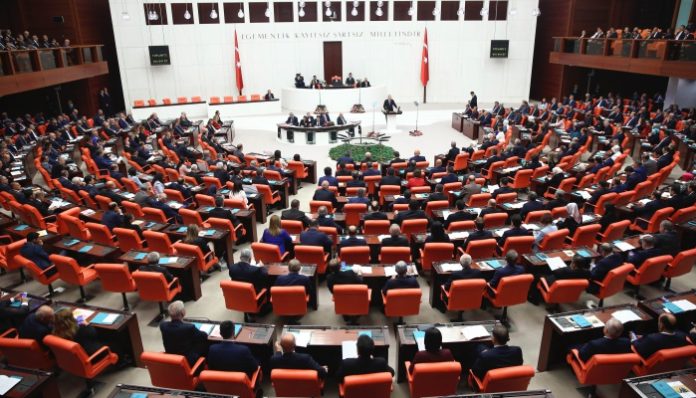Hakkı Köylü, the former head of a committee that was established by the Turkish Parliament to investigate four then-ministers accused of bribery and corruption in late 2013, has stated that revisiting the probe might be discussed only if new evidence emerges, Deutsche Welle Turkish service reported on Wednesday.
An MP from the ruling Justice and Development Party (AKP), Köylü headed the 14-member parliamentary committee that included nine lawmakers from the ruling AKP and five from the opposition and that decided by majority vote in 2015 against the trial of the four ex-ministers who were implicated in bribery and corruption.
“Our decision was similar to a decision of non-prosecution. … In order for non-prosecution to be lifted and an investigation to be re-launched, new evidence must be revealed. Maybe this can be discussed then. That’s the job of the parliament. Those [MPs] who want to revisit the probes and those who don’t should discuss it,” Köylü told DW Turkish on Wednesday.
When asked if he stands behind his decision regarding the 2013 probes, Köylü said: “We stand behind our decision. Are we in a position to say that we changed our minds about it? Our decision is currently in a commission report.”
Discussions of revisiting the December 17-25 bribery and corruption investigations were rekindled after Erdoğan Bayraktar, the former Turkish minister of environment and urban planning, recently confirmed the validity of charges against him in connection with the graft scandal that had shaken the Turkish government to the core in 2013.
Bayraktar on Sunday revealed in an interview posted on YouTube that the evidence against him included in the case file of the December 17-25 bribery and corruption investigations was genuine and not doctored as alleged by the ruling AKP.
Following Bayraktar’s revelation, Presidential High Advisory Board member Cemil Çiçek, who is also a former justice minister and parliament speaker from the ruling AKP, said the case files of the four former Turkish ministers who were implicated in the 2013 investigations should have been reviewed by the Supreme State Council, contrary to the decision of the parliamentary committee.
Turkey’s Constitutional Court also functions as the Supreme State Council to hear cases brought against the country’s highest officials for crimes related to their official duties.
The graft scandal that erupted with the arrest of the sons of three then-ministers from the ruling AKP, Iranian-Turkish businessman Reza Zarrab, the director of a state-owned bank, a district mayor and many more on December 17, 2013, also implicated the children of then-prime minister and current President Recep Tayyip Erdoğan.
Despite the scandal resulting in the resignation of the cabinet members, the investigation was dropped after prosecutors and police chiefs were removed from the case. Erdoğan, officials of the AKP and the pro-government media have described the investigation as an attempt to overthrow the government.
Dismissing the investigations as a conspiracy against his government by the Gülen movement, a group inspired by Muslim cleric Fethullah Gülen, Erdoğan designated the faith-based movement as a terrorist organization and began to target its members.
He locked up thousands, including many prosecutors, judges and police officers involved in the investigation.
Bayraktar’s revelations came as a blow to Erdoğan’s claim that the corruption scandal was fabricated by sympathizers of the Gülen movement within the police department with the aim of overthrowing his government.
Source:Turkish Minute
***Show us some LOVE by sharing it!***


